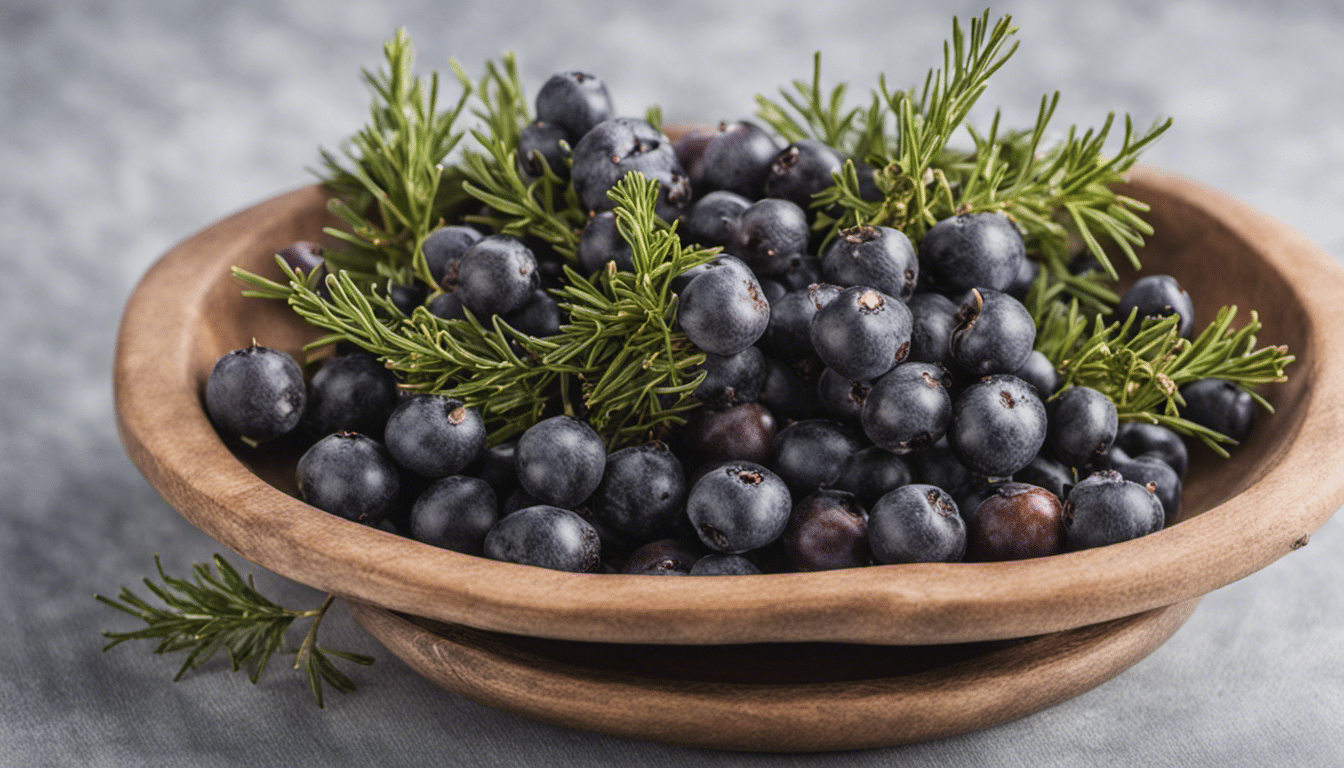All About Juniper berries
If you’ve delved into the fascinating world of spices and botanicals, you’ve likely come across a small, dark blue fruit called the Juniper berry. Loved for their distinct, pine-like flavor, Juniper berries often take centerstage in myriad culinary dishes and traditional health remedies. But what exactly is a Juniper berry? What are the health benefits? Let’s plunge into the world of this brilliant blue wonder.
An Overview of Juniper Berries
Contrary to the name, Juniper berries (Juniperus communis) aren’t actually berries at all. They are cone-like seed structures from the Juniper plant, a type of coniferous plant within the cypress family. Often mistaken for a berry due to their fleshy, rounded appearance. Each berry-like cone features a rich, dark blue pigment that evolves from a pale green color as the cone matures.
The Juniper plant is incredibly hardy and can prosper in a multitude of environments, from frigid north regions to mountain ranges to semi-desert climates. It is indigenous to the Northern Hemisphere, with its presence spanning North America, Europe, and Asia. As a result, the Juniper Berry has found its way into various cultures’ culinary and medicinal practices worldwide.
Culinary Uses of Juniper Berries
Renowned for their distinct, aromatic flavor profile, Juniper berries give a substantial flavor punch. Their taste is often likened to a blend of pine, citrus, and rosemary, with a subtly woody undertone. The flavor is so potent that you usually need only two to three berries to subtly season a dish.
Most famously, Juniper berries play a vital role in making gin, giving the drink its characteristic bitter-pine flavor. However, their nuanced flavor profile also makes them an excellent addition to various savory dishes, with notable inclusion in European cuisines such as German sauerkraut and Scandinavian meat dishes.
The Health Benefits of Juniper Berries
Aside from their culinary usage, Juniper berries are abundant in beneficial compounds that confer numerous health benefits. They have been used in traditional medicine for centuries, particularly for their anti-inflammatory, antioxidant, and antimicrobial properties.
One key compound found in Juniper berries is alpha-pinene, which is known for its anti-inflammatory and antibacterial properties. This makes Juniper berries potentially useful in combatting harmful bacteria and alleviating inflammation-related conditions.
Beyond alpha-pinene, Juniper berries also boast the presence of other bioactive compounds, including myrcene, limonene, and terpinene. These compounds have been linked with various benefits ranging from improving digestion to aiding wound healing, and even acting as a natural bug repellent.
Furthermore, research has noted that Juniper berries may have antioxidant properties that can help combat harmful free radicals within the body, potentially reducing the risk of chronic diseases such as heart disease and cancer. However, it’s important to note that more extensive research is needed in this area to determine the full extent of their potential benefits.
In conclusion, the Juniper berry — a uniquely flavored berry-cone hybrid turned versatile spice — is certainly not to be overlooked in the realms of both gastronomy and natural health remedies. With its potent flavor profile and rich spectrum of health benefits, the Juniper berry proves that good things truly do come in small packages.
Juniper berry Recipe Ideas
- Juniper Berry Glazed Duck
- Juniper Berry and Rosemary Venison Stew
- Rabbit with Juniper Berries and Red Wine Sauce
- Smoked Salmon with Juniper Berries
- Juniper Berry Dry Rub for Steaks
- Roasted Pork Loin with Juniper Berries
- Juniper Berry Ice Cream
- Homemade Juniper Berry Gin
- Juniper Berry and Apple Jam
- Juniper Berry Sauerkraut




